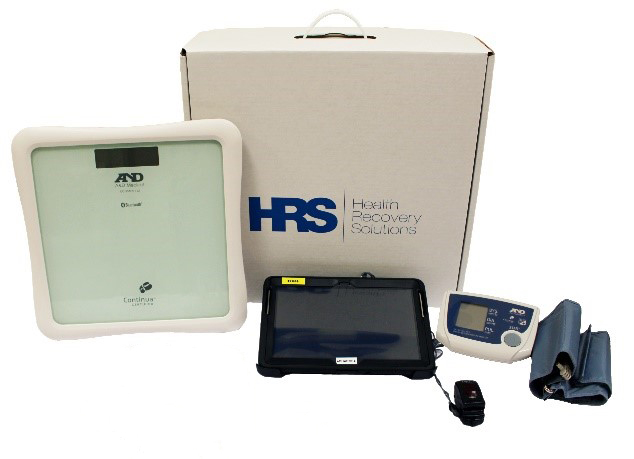What Is Durable Medical Equipment?

When it comes to medical terms, it can be confusing to keep up with all the health care terms. As you age, there is one term that you will likely hear more than once - durable medical equipment or DME. While this may sound self explanatory, DME is a specific medical term used by insurance companies like Medicare and Medicaid. Let’s take a look at what durable medical equipment is and why you may need it at some point.
What Is Durable Medical Equipment (DME)?
Durable medical equipment (DME) refers to a specific medical term used by health insurance companies like Medicare, Medicaid, and private companies. DME is any medical device or supplies that are necessary for a person’s health, which can be used for a long-term basis. In general, seniors that have serious illnesses or mobility challenges need durable medical equipment more than other age groups.
To qualify as DME, the item must be:
- Used mainly for a medical purpose
- Ordered by a health provider
- Used for a long-term basis of at least a few years (not a single use item like a band aid)
- Used in the home
- Only used by patients that have an illness, injury, or disability
What Are Some Examples of Durable Medical Equipment?
Some common examples of durable medical equipment for home use includes:
- Bed equipment (i.e. bili lights or blankets, hospital beds, lift beds, or pressure mattresses)
- Mobility assistive equipment (i.e. canes, crutches, scooters, walkers, and wheelchairs)
- Kidney machines
- Orthotics
- Oxygen concentrators, monitors, and ventilator supplies
- Personal care assistive equipment (i.e. shower chairs, commodes, and dressing aides)
- Prostheses
- Traction equipment
What DME Is Covered by Medicare?
Medicare Part B covers durable medical equipment if your medical provider orders it for home use. This is great news for those that are currently enrolled in Medicare and need DME to continue living at home independently. When requesting DME, it’s vital to make sure that your medical doctor and supplier are both enrolled in Medicare. If your doctor and supplier are enrolled, your equipment will not be covered by Medicare, which can lead to an expensive medical bill.
Examples of DME Covered by Medicare Part B:
- Breathing equipment (i.e. CPAP devices, nebulizers and medications, and oxygen equipment and accessories)
- Commode chairs
- Continuous passive motion devices
- Diabetes supplies (i.e. blood sugar meters and test strips, lacets, and lancing devices)
- Hospital beds
- Infusion pumps and supplies
- Mobility assistive devices (i.e. canes, crutches, patient lifts, walkers, and wheelchairs)
- Pressure-reducing support surfaces
- Suction pumps
- Traction equipment
What DME Is Covered by Medicaid?
Like any government insurance, Medicaid programs and coverage vary by state. If you need DME, it’s recommended that you contact your local Medicaid office to determine what is covered. Medicaid typically covers medical equipment that is both affordable and medically necessary for a patient. Some state Medicaid programs cover all of the cost for durable medical equipment, while others only pay for a portion of it.
If you are enrolled in Medicaid, you may be wondering what the process looks like for requesting DME. While the qualification process varies by state, here is a basic idea of what to expect. You will first receive a letter from your doctor that lists what you need. Then, you will choose a supplier enrolled in Medicaid and take your letter to them. Your supplier will fill out a prior approval (PA) application and send it to your state Medicaid office, who will either approve or deny the request. Any approved request will allow the supplier to send you the DME and bill your insurance. For denied requests, you will be mailed a letter explaining the reason and information for how to appeal the decision.
Aside from government funded insurance, patients also have the option to use private insurance to receive their DME. In general, most private insurance companies will cover some or all of durable medical equipment costs. Other options include the VA for veterans, self-pay, and non-profit assistance from local organizations.
Now that we have discussed durable medical equipment, we hope you will be better informed about what this term means and what you need to know in case you or a loved one require DME to live safely at home. If you are looking for a high-quality home care, hospice care, and palliative care office, contact Liberty HomeCare and Hospice Services today. We offer expert, compassionate care to locations across North Carolina, South Carolina, and Virginia.
How to Help Seniors Stay Safe at Home

The Federal Housing Administration indicates that an estimated 90 percent of people would like to age at home. While seniors continue to age and live at home, it’s a good idea to follow some helpful tips to ensure they stay safe at home. Check out Liberty HomeCare and Hospice Services’ tips below, which will help reduce the risk for falls, injuries, and costly hospital visits. After all, by avoiding injuries, this will help seniors maintain their independence in the comfort of their homes.
Tips to Help Seniors Stay Safe at Home
1. Remove Potential Trip Hazards
Certain types of household items are known trip hazards. This includes electrical cords, low furniture, ottomans, and rugs. By removing these items or keeping them out of the way, this can help reduce the risk of falls. If there are children or pets in the home, remember to pick up any loose items like toys. To create a safer area for your loved one to walk, consider installing a non-slip flooring or placing non-slip mats throughout the home. Electric outlets, cords, and wires can be covered to also help create a safer home environment.
2. Create Easy Seating Areas
As people age, it can be helpful to set up easily accessible seating throughout the house. Consider your loved one’s daily routine and what would be most useful. For example, you can set up a bench next to the front door to sit on while putting on their shoes. Additionally, you can add a shower bench to make it easier for them in the bathroom, as well as a chair or stool for cooking meals in the kitchen.
3. Install Grab Bars in Bathrooms
Did you know that the majority of falls in the home take place in a person’s bathroom? To help prevent in-home falls, consider installing a grab bar in your loved one’s shower. You can purchase these bars in hardware stores or online. The grab bars can be installed by a plumber, home safety specialist, or you, if you are handy with tools.
4. Evaluate the Home’s Doorway
If your loved one’s doorways are not flat, this can be a potential hazard for seniors. To address this safety concern, consider building an indoor ramp, flattening the entranceway, or adding handrails. Any of these suggestions will help your loved one maintain their balance as they enter and leave their home.
5. Check Out the Outdoor Areas
This may be a potentially overlooked section, but it’s important that the outside of the home is safe and secure too. The path from the front door to the mailbox should be clear of dirt, rocks, and roots that could be a tripping hazard. Additionally, monitor the home’s driveway for cracks that can cause a fall.
We hope you enjoyed this week’s article sharing some easy tips for keeping your loved one’s home safe and secure. By preventing falls, this will help seniors maintain their independence at home where they love to be the most. If you are looking for high-quality home care, hospice care, or palliative care for your loved one, contact Liberty HomeCare and Hospice Services today. Our expert, compassionate team is dedicated to helping each patient and their family receive the care, support, and resources they need to maintain their independence and achieve the highest quality of life possible.
How To Start the Conversation About Home Care

Do you have an aging parent? Do you worry about their health, happiness, and safety? If you answered yes to these questions, you are probably looking for tips to start the conversation about home care. It’s not easy to start this conversation, especially if it’s the first time you are approaching the subject with your parent. Keep reading for our tips on how to prepare for and have the conversation with your parent.
Prepare for the Conversation
Like anything, it’s important to do your research before discussing home care with your parent. This will help set you up for success as you will be informed about the options available to your loved one. While your parent will have the ultimate decisions about their life, staying educated will allow you to be as helpful as possible as they age.
- Write a list of your concerns.
Ask yourself what you are worried about for your parent. This may include the parent not living in a safe home environment, having health issues, or struggling with activities of daily living (ADLs). Common ADLs include bathing, dressing, eating, grooming, and managing medications. It’s a good idea to ask other family members to share their concerns about your parent. Add this valuable information to your list.
- Learn about your parent’s options.
Before you start this conversation, remember to do your research. Check out the home care options in your area and the services offered. It can be difficult to admit how much help your parent needs, but taking a look at the choices in your area is a good first step. Your parent may be concerned about receiving help during a pandemic, so it’s also a good idea to ask each facility about their policies towards the pandemic and safety in general.
- Listen to their wants and needs about their living setting.
Remember that ultimately, your parent will make the decision about where and how they live. When they are able to live in a place where they are safe, healthy, and happy, this will have a significant impact on the quality of their life. Maintaining their independence will be a top priority among aging parents. By listening to their wants and needs, this will make the conversation go much more smoothly.
Have a Productive Conversation About Home Care
Now that you have prepared for the conversation, the next step is to have a conversation about senior living choices with your parent. The following tips can help you navigate this touchy subject in a way that is productive and empathetic to your loved one’s needs.
- Start the conversation early.
Rather than waiting for a medical emergency, it’s recommended to have this important conversation as early as possible. This will give your loved one time to think about their options and make a decision without being rushed. After all, this is a life-altering choice that deserves some serious thought.
- Talk in person.
If possible, it’s best to have this conversation in person. When this isn’t possible, the next best option is to have a video call, so you can see each other. This can make it easier to read your loved one’s emotions and facial expressions, which will determine when it’s time to take a break and continue the conversation at a later time. Choose a time when you are both calm and not distracted. This talk deserves you and your loved one’s full focus.
- Listen to them.
During your conversation, actively listen to your parent’s concerns. It’s normal for them to feel worried about changing their living arrangements, depending on their health conditions. It’s essential that you recognize their feelings and ask questions, which will help you better understand their point of view. By doing this, this will show them that you care about them and respect their wishes.
- Be empathetic.
Rather than feeling sorry for your aging parent, it’s better to be empathetic. Using a caring, calm voice and demeanor will show how much you care about your parent and that you understand their feelings they are having. It can be difficult to accept that they need help maintaining their independence either at home. By recognizing and listening to their concerns, this shows your parent that you care.
- Keep the conversation going.
Since this is a big conversation, it makes sense that you will continue talking about this topic overtime. This can make it easier for your loved one to digest and take their time with figuring out the best choice for their health needs.
- Remember it’s their choice.
Always remember that it’s your parent’s choice as to where they live. In most cases, your parent will prefer to live at home, which is the place they know and love. As long as their doctor approves that they can still live safely at home, it’s best to respect your parent’s wishes. They will appreciate your support and care as they ease into the natural aging process.
We hope you found this week’s article helpful discussing our top tips for starting the conversation about home care with your parent. It may be challenging to get the conversation started, but it’s always better to do it before a medical emergency. This will give your parent time to consider their options and discuss with their doctor about the best choice for their needs. Contact Liberty HomeCare and Hospice Services today to learn more about our home care services offered in NC, SC, and VA.
Why Patients Live Longer with Hospice Care

Even though millions of people receive hospice care every year, there are still several misconceptions about this type of end of life care for patients. Studies have shown that hospice patients tend to live longer compared to patients with similar health conditions that don’t receive hospice. The focus shifts from receiving curative treatments to embracing each day with loved ones, being as comfortable as possible, and easing through a natural stage of life. When patients choose hospice, they make a choice to improve the quality of their lives. Keep reading to find out why patients live longer with hospice care.
Hospice Care is At Home
Typically, hospice care is provided in a patient’s current living setting. This can be their home, a loved one’s home, an assisted living facility, or a skilled nursing facility. When patients are surrounded by people and things they love, they feel much more comfortable, safe, and happy. Additionally, patients and their families can dictate their own schedules and rules, which is not possible in a very structured hospital environment. Indeed, hospitals must enforce rules about visiting hours, what can be brought, and how long visitors can stay. By receiving care at home, patients will be more relaxed knowing others can come over when they are feeling up to having company.
Comfort is a Top Priority
A top priority of hospice care is ensuring patients are as comfortable as possible. The hospice team will help patients better manage their pain and symptoms related to their serious illness. In turn, patients will find it easier to connect with their loved ones and embrace each day with the time they have left.
Shift in Focus
When patients choose hospice, this means they are ready to stop receiving curative treatments for their serious illness or chronic condition. Since hospice is a choice, they can always stop this care and choose to start treatment again. The decision is always up to patients and their families. By shifting the focus from treatments to living the most comfortable life possible, patients will feel relief and a newfound energy. Indeed, patients will no longer have to worry about frequent trips to a clinic for treatment, as well as the aggressive medications with their unpleasant side effects.
The patient’s hospice team will focus on helping them live as comfortably and for as long as possible. This essential team will also help create meaningful experiences for patients and families, which will help meet their emotional and spiritual needs. Patients will be able to share memories with those that matter most.
Connect with Loved Ones
For patients, having the love and support of their loved ones can be a powerful force for improving the quality of their life. Aside from patients, the hospice team provides support to patient’s caregivers in the home. When families and friends visit their loved one, they will find comfort in the care and support the patient is receiving.
Hospice care offers several benefits for patients and their families. While every person is different, many hospice patients tend to live longer than those that do not receive this care. It’s not surprising that patients do better at home, where they are comfortable and surrounded by the people, pets, and things they love dearly. This can be a motivation for them to embrace each day and do what matters most to them, whatever that may be. If you and your loved one are considering hospice care, contact Liberty HomeCare and Hospice Services. Our expert hospice care is offered across NC, SC, and VA.
Common Myths About Hospice Care

In 2018, around 1.55 million Medicare beneficiaries received hospice care, a number that will continue to rise. Despite the fact that millions of people receive hospice, this is still a commonly misunderstood term. When people hear the word hospice, they may feel worried about their loved ones. It’s important to know that hospice provides quality end-of-life care that focuses on embracing each day, sharing time with loved ones, and easing through a natural stage of life as comfortably as possible. Let’s address some common myths associated with hospice and present the facts you need to know for you and your loved one.
Common Myths About Hospice
Myth #1: Choosing Hospice Means Giving Up
This is far from true. Hospice is all about helping patients ease through a natural stage of life and make each day matter. It’s about living life to the fullest with the time they have left. Various research over the years indicates that patients who receive hospice tend to live longer and have a better quality of life compared to patients that choose aggressive medical treatments or no treatment at all. Indeed, hospice is a choice to live as comfortably as possible and enjoy each day with friends and family.
Myth #2: Hospice is Too Expensive
Hospice is fully covered by Medicare and Medicaid, which provides unlimited hospice care for as long as the patient has a life-limiting illness. Most private health insurance companies also cover this type of care with little to no out-of-pocket expenses. This covers visits, medications, and supplies and equipment needed for the patient’s hospice diagnosis.
Myth #3: Hospice Care is Only Offered At Hospitals
In general, most hospice care is offered wherever a patient calls home. By providing this essential care in the home, patients will feel more comfortable and relaxed compared to being in an unfamiliar setting like a hospital or hospice facility. Of course, hospice care is also offered at skilled nursing facilities, assisted living facilities, and hospitals.
Myth #4: Hospice Means You Lose Control
Once a patient qualifies and is admitted to hospice, they can choose to stop this care at any time. This gives the patient control over what they want regarding care and support. Examples of why a patient may stop hospice is because their condition has improved or they want to start receiving curative treatment instead. Patients can also choose to resume hospice care as long as they still have a life-limiting illness.
Myth #5: Hospice is Only For People with A Few Days or Weeks Left to Live
Hospice is for patients that have received a diagnosis from their doctor that they have six months or less left to live. Instead of seeing this as the end, patients and their families should view this as a special time to make each day matter and help the patient receive the best care possible. Hospice helps patients better manage their pain and symptoms related to their illness, as well as address their emotional and spiritual needs. This care can extend the patient’s projected life expectancy, which means more time spent with loved ones. Even when patients improve, they can still receive hospice for as long as they qualify.
Myth #6: Hospice Care Is Only For Cancer Patients
Hospice care is not just for patients with a cancer diagnosis. Indeed, any patient with an estimated life expectancy of six months or less can qualify for hospice. Some of the most common reasons people receive hospice include:
- Cancer
- Alzheimer's / Dementia
- Heart disease
- Lung disease
- Stroke
- ALS
There are several myths about hospice care. Since hospice care offers so many benefits for patients and their loved ones, it’s crucial to understand the facts from the fiction. Liberty HomeCare and Hospice Services is dedicated to providing compassionate care and support for a transition marked by dignity and meaning. Contact us today to learn more about our hospice care designed to help patients embrace each day, share time with loved ones, and experience life to the fullest without pain.
What You Need to Know About Five Wishes
 An advance directive is a written, legal document that details your preferences for medical care if you are unable to make the decisions yourself. An advance directive acts as a guide for your doctor, family members and caregivers so they know exactly what you want.
An advance directive is a written, legal document that details your preferences for medical care if you are unable to make the decisions yourself. An advance directive acts as a guide for your doctor, family members and caregivers so they know exactly what you want.
Liberty Hospice can help you with advance directive planning through the Five Wishes program. Fives Wishes is a living will that covers personal, spiritual, medical and legal wishes all in one document in clear, easy to understand terms. Five Wishes was created by Aging with Dignity, a non-profit organization that advocates for the needs of seniors and those who care for them.
In this blog, we answer some of the frequently asked questions about Five Wishes and advance directives.
Why should I fill out an advance directive?
If you become seriously ill, expressing your wishes in an advance directive like Five Wishes empowers your doctor, family members and caregivers to make the best decisions when the time comes and helps avoid disagreements about what to do. It can help everyone involved have peace of mind, knowing your wishes are being met. By planning ahead, you will receive the medical care you want and your caregivers will not have to make difficult decisions during moments of crisis or grief.
When should I fill out an advance directive?
The best time to fill out an advance directive like Five Wishes is now, before you face a health crisis. Life is unpredictable and it is always better to be prepared. If your desires change, you can always update your advance directive at any time. Five Wishes recommends reviewing your advance directive at least once a year or if you have any major changes in your health or your family support network.
Is Five Wishes a legal document?
Yes, Five Wishes is a legal document written with the help of the American Bar Association’s Commission on Law and Aging. Five Wishes meets the legal requirements of 46 states, including North Carolina, South Carolina and Virginia. Five Wishes is used widely in all 50 states and a federal law requires medical care providers honor patient wishes as expressed.
What is a health care agent and why do I need one?
The first wish you fill out in Five Wishes is designating a health care agent who will speak for you if you can’t speak for yourself. Anyone 18 or older can act as your health care agent in all states except Colorado, where the agent needs to be 21 or older. Five Wishes recommends you select someone who is trustworthy and reliable. This person does not have to be a family member. Five Wishes also recommends discussing your wishes with your health care agent so there are no misunderstandings later should they need to advocate on your behalf.
When does Five Wishes take effect?
Five Wishes only takes effect when you are no longer able to communicate. The person you have chosen to be your health care agent will use your Five Wishes document to help convey your specific wishes about your care. If you are still able to communicate, you can still make your own decisions about your care and will not need to use Five Wishes.
What should I do after completing Five Wishes?
After completing the Five Wishes printed booklet, Five Wishes suggests the following:
- Review the document, possibly with your family.
- Follow the directions for signing the document.
- Discuss the document with your healthcare agent and doctor and give each a copy.
- Make sure your doctor places your Five Wishes in your medical file.
- Discuss your Five Wishes with your family and friends and give them a copy.
If you completed your Five Wishes online, print out the document and share copies with your family, doctor and health care agent.
After you have signed your Five Wishes and met all the requirements for your state, this important document should be stored somewhere easy to find. The wallet card attached to the Five Wishes document should be signed and placed in your wallet. As recommended above, it is a great idea to make several copies for your family, health care agent and doctor. This just makes it easier to access if you become seriously ill and the advance directive is needed.
Five Wishes is an excellent way to convey your specific wishes about your health care and Liberty Hospice can help facilitate the steps necessary to complete the document. Contact us today to learn more about Five Wishes and how our hospice services can help make each day matter with compassionate, expert care.
What Does a Home Health Aide Do?

At Liberty HomeCare and Hospice Services, our home health aides provide valuable care and support to patients and their families. Home health aides play an essential role in helping patients live independently in their homes. If you or your loved one is considering home health care, it’s important to know what home health aides can do and how they can help you live as independently as possible. Let’s take a closer look at what home health aides do.
What Does a Home Health Aide Do?
Home health aides (HHA) help patients live independently at home by assisting with activities of daily living (ADLs). HHAs work with a wide variety of different patients from young adults to aging seniors. Aside from assisting with ADLs, home health aides receive advanced state-approved training and licensing that allows them to identify certain symptoms in their patients. By quickly recognizing undesirable symptoms, HHAs help their patients get the medical care they need to maintain their independence and achieve the best quality of life possible.
Home Health Aide Duties
As part of a multidisciplinary individualized home care plan, home health aides provide specific personal care services, including assistance with activities of daily living:
- Bathing
- Dressing
- Oral Care
- Toileting
It’s important to note that these services are only offered when other skilled services are ordered by the patient’s physician. These skilled services may include nursing, therapy, or rehabilitation, all of which are offered through Liberty HomeCare and Hospice Services.
Join Liberty’s Team as a Home Health Aide
Home health aides make a positive impact on patients and their family’s lives. With every visit, HHAs are doing their part to help patients maintain their independence and achieve the highest quality of life in the place they love, their homes. If you want a meaningful career that helps people every day, consider a home health aide career. Aside from the value you bring to others, Liberty HomeCare and Hospice Services also offers flexible scheduling, competitive compensation and benefit packages, a 401 (k) retirement plan, and much more.
What Is Telemonitoring?

Telemonitoring refers to the use of technology to provide remote healthcare to patients from the comfort of their homes. At Liberty HomeCare and Hospice Services, our telehealth program provides an additional layer of support for patients and their families. Keep reading to find out what telemonitoring is to help you determine if this service is right for you or your loved one.
What Is Telemonitoring?
Telemonitoring is the use of technology to provide care and support to patients in their homes. This allows the patient’s medical team to track and monitor a patient’s vitals on a regular basis. To do this, a patient receives a monitor to check their vitals as recommended by their doctor. These vitals include their blood pressure, blood oxygen level, pulse, and weight. If any of their vitals are out of normal range, a patient’s nurse will be notified to determine what action should be taken. All of this sensitive patient information is transferred over a secure website connection that can only be accessed by the patient’s care team.
It’s important to note that telemonitoring is not a replacement for home care visits. Instead, telemonitoring is a supplement to these visits that helps maximize the time spent in a patient’s home and can reduce rehospitalization.
Telemonitoring Allows Liberty to:
- Provide patients and their families with education related to their disease process
- Monitor and review patient’s vitals on a daily basis
- Provide more appropriate, timely care based on the patient’s vitals and needs
- Update physicians on the status of their patients
What Are the Benefits of Liberty’s Telehealth Program?
Liberty’s telehealth program allows patients to maintain their independence and receive quality care and support from an expert medical team in the comfort of their homes. This gives the patient’s family peace of mind knowing that their loved one is in good, caring hands.
Liberty’s Telehealth Program can help:
- Patients better understand and manage their chronic health condition
- Patients regain their independence and ability to live safely on their own
- Reduce the number and frequency of hospital and ER visits
With over 100 million Americans living with one or more chronic conditions, the benefits of telemonitoring are significant. This home telemonitoring program allows patients to receive the expert care and support they need, while also maintaining their independence and highest quality of life possible at home. Indeed, maintaining one’s independence and living at home are top priorities for patients in need of home care. If you would like to learn more about our home care and telemonitoring services, contact Liberty HomeCare and Hospice Services today.
What You Need to Know About Liberty’s Gastrostomy and Ostomy Care

If you or a loved one has received a gastrostomy or ostomy procedure, you may be wondering about your care and support options upon returning home. Since these procedures require special care to prevent the risk of complications and infections, it’s important to know how to care for the stoma (small opening) on your own. Let’s take a closer look at Liberty HomeCare and Hospice Services’ gastrostomy and ostomy care and why this service may benefit you or your loved one.
Liberty’s Gastrostomy and Ostomy Home Care Services
Since each patient has unique needs, the type of care they receive will depend on the type and function of the gastronomy tube (G-tube) or ostomy system. In general, Liberty’s skilled nurses can provide the following services in the comfort of the patient’s home:
- Administer feedings and medications.
- Apply, change, and empty pouch systems.
- Apply clean dressings.
- Clean and maintain the G-tube or Ostomy site on a daily basis.
- Monitor and prevent infections.
- Perform flushing to keep tubes clean.
- Provide meal planning assistance.
- Provide education to patients and their families on how to care and maintain the G-tube or Ostomy site.
- Work with the patient's primary care doctor and family.
Our expert nursing team understands that patients that have undergone ostomy and percutaneous endoscopic gastrostomy can affect the patient’s quality of life and self-image. This is why we provide one-on-one support to help patients and their families feel more comfortable with the physical changes related to their procedures. Additionally, our expert care and support is designed to help reduce the risk of infection and other complications.
Promote Independence and Education
Like all of our services, a key component of our gastrostomy and ostomy care services is to promote independence and education. We help our patients to regain their independence and to learn how to adapt to their current health needs. By adapting to their current situation with a positive attitude and compassionate care team to support them, our patients are able to achieve their health goals.
Expert, Compassionate Home Care
Our caring and supportive nursing team are here to help patients and their families. Liberty HomeCare and Hospice Services offers high-quality home health care, consultation, and support to those that have received a gastrostomy and ostomy procedure. Since these services are offered in a patient’s home, this will help patients feel more comfortable and relaxed. In turn, this means patients can focus more on healing and regaining their independence at home, rather than being stressed out and uncomfortable in an unfamiliar place. Contact us today to discuss your specific home care needs and learn how we can help you.
Benefits of Cardiac Care At Home

Did you know that millions of Americans are affected by heart disease? If you or a loved one is living with a cardiac condition or perhaps is recovering from a recent procedure, you may need assistance with regaining your independence, strength, and function necessary to live the best quality of life possible. At Liberty HomeCare and Hospice Services, we provide a special home care program for cardiac care patients that focuses on patient self-management of the signs and symptoms of cardiac distress. Continue reading to discover the top benefits of receiving cardiac care at the place you love and feel most comfortable, your home.
Cardiac Care At Home
Cardiac care at home is designed for patients that have a cardiac condition or those that are recovering from a cardiac procedure, such as open heart surgery, angioplasty or stent placement. The primary goal is to help patients regain their independence, achieve their best quality of life, and learn the signs and symptoms of cardiac distress.
Cardiac Conditions include:
- Angina pectoris
- Cardiomyopathy
- Cerebrovascular trauma
- Coronary artery bypass graft (CABG)
- Heart failure (HF)
- Hypertension
- Ischemic heart disease
- Myocardial infarction (heart attack)
Like all Liberty home care services, our cardiac care program provides a personalized treatment plan based on each patient’s needs. Since each patient recovers differently, it’s imperative that we provide a customized plan that ensures patients and their families that they are receiving high-quality, expert care.
Our Cardiac Care Program includes:
- Disease management tips
- Education regarding lifestyle changes, proper nutrition, and exercise
- Medications to manage symptoms
- Patient self-management of signs and symptoms of cardiac distress
- Regular checks of a patient’s blood pressure, heart rate, oxygen levels, and weight
- Self-care recommendations
Benefits of Cardiac Care at Home
Patients will benefit from receiving quality care at home, in a familiar, comfortable setting. By being at home, the patient experiences less stress than can occur when receiving treatment in a nursing or hospital setting. Aside from being more comfortable and relaxed, cardiac care in a home setting has other possible benefits, such as:
- Assistance with finding relevant community services for patients
- Provide education for patients and their families, which helps everyone play an active role in understanding the patient’s condition and treatment plan
- Improved quality of life
- Less hospital visits, which are costly and stressful
- More support with coordinating and working with healthcare providers
- Telemonitoring allows a cardiac patient’s vitals to be monitored remotely
Benefits of Liberty’s Telehealth Program
To provide an additional layer of support, Liberty proudly offers telehealth to cardiac patients and their families. Cardiac patients receive a monitor allowing our dedicated telehealth team to engage with them remotely as needs arise. Liberty’s Telehealth Program provides the following benefits to patients and the families as well as to their providers:
- Reduce hospital visits and 30-day readmissions
- Create regular reports for doctors
- Provide daily support and oversight of patients’ conditions
- Improve patient engagement and self-management of their chronic conditions
- Decrease the need for costly urgent care and ER visits
No matter what type of cardiac condition a patient may have, receiving cardiac care at home can have a positive impact on their recovery rate and overall quality of life. Contact Liberty HomeCare and Hospice Services today to learn more about our specialized home care program designed to help cardiac patients. By making healthier lifestyle choices, following a personalized treatment plan, and practicing self-care tips, our skilled nurses can help patients achieve the highest quality of life possible.










